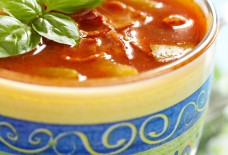Jerusalem Serves as Disputed 2009 Arab ‘Culture Capital’
For 2009, UNESCO and the Arab League designated Jerusalem as the year’s Arab cultural hub. Asserting their control over predominantly Arab East Jerusalem, Israeli authorities forbade events associated with the Arab Capital of Culture program.
In response, the festival was driven underground. One organization that coordinated a series of indoor performances in East Jerusalem last month was
Al Quds Underground.
Worldfocus spoke with the project’s organizer, Dutch composer Merlijn Twaalfhoven.
Worldfocus: Did your festival succeed in calling attention to the artistic dimension of Jerusalem — rather than the political side of the city?
Merlijn Twaalfhoven: Indeed, we succeeded to look at what’s behind the surface. Behind politics, history and religion, there is a daily life with intimate stories, living culture and personal connections. We were able to focus on this reality and to leave political discussion behind. I directed the monologues, songs and stories towards the personal.
Worldfocus: UNESCO labeled Al Quds as this year’s capital of Arab culture. What exactly does that mean?
Merlijn Twaalfhoven: Every year, a city in the Arab world has such a title. Last year a lot of international attention was focused on Damascus, for example. [And 2010’s will be Doha, Qatar]. Because of the sensitive issue of the cultural identity of Jerusalem, the Cultural Capital did not succeed in Jerusalem itself. It took place in exile (on the West Bank and in other Arab towns like Amman, Beirut, Damascus).
Worldfocus: Was the festival’s intention also to subvert Israeli claims to sovereignty over the whole city and assert the identity of Palestine’s future capital?
Merlijn Twaalfhoven: The official [Ramallah-based organization’s] website explains it quite well.
In practice, the capital wants to celebrate the culture of diversity in Jerusalem — but not together with the Israelis because of the current situation of occupation and suppression.
Worldfocus: To what extent were Jewish Jerusalemites encouraged to join the festival?
Merlijn Twaalfhoven: Just a few days before the project, there were riots in the city. The tensions were very high and the participants didn’t all trust our intentions at the start. In order to give the house owners a feeling of safety, and to avoid more tensions, we invited only personal connections and relations of the participants and our partner organizations.
We found out it is too early now to invite Israeli groups when people are still in a shock from the riots around the Temple Mount. Also the situation in Gaza makes many Palestinians very sad and they feel it’s not decent to have tea and invite Israelis in their homes now.
Of course, I regret that and I know there are many Israeli people who want to come in peace. But peace comes in small steps, and to bring Israeli audience now is just a step that is too big at this point.
Also, we don’t want to create symbols or slogans when we cannot make it real. To say we create peace is something we cannot fulfill at this stage. But we can work on a condition for peace and that is: dignity, expression of identity and a healthy cultural life.
To bring Israeli people to Palestinian houses now will create a tension that will derive the project from its goal: to stimulate openness and contact first among the sub-cultures of the Palestinian society.
A project like this can easily become part of a strong lobby’s propaganda. We wanted to keep it intimate and personal. We hope that, in the future, it is possible to invite also Israeli, because it is essential to bring people together and step-by-step work on a situation in which all people are equal in Jerusalem.
Worldfocus: What is your long-term cultural and political outlook for the city that is at the heart of the Israeli-Palestinian conflict?
Merlijn Twaalfhoven: Jerusalem is a symbol of multiculturalism. The real conflict is between people that want to live together and people that want the city for one specific ethnic group exclusively. I hope that Al Quds Underground can happen every year and create more openness in this place. Also, it is mostly outsiders that fight, pay and pray for the faith of Jerusalem.
These outsiders must know that, for ages in Jerusalem, all religions and different people have lived together. A project like this can communicate this diversity. I hope it encourages foreign artists to come to Jerusalem and explore the beauty of diversity themselves.
Ben Piven
World Focus



